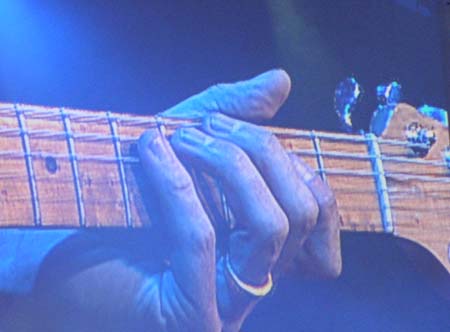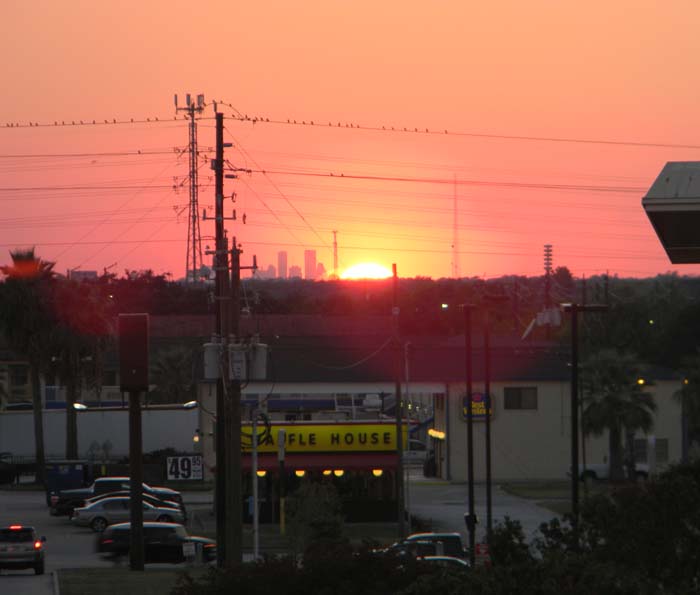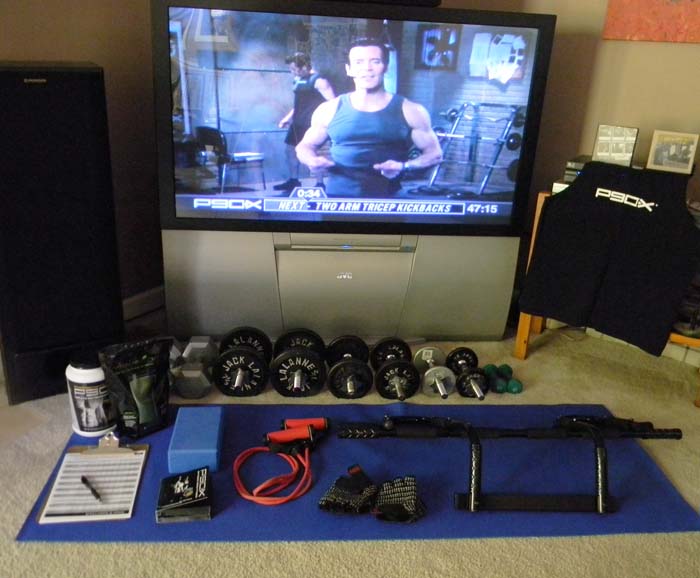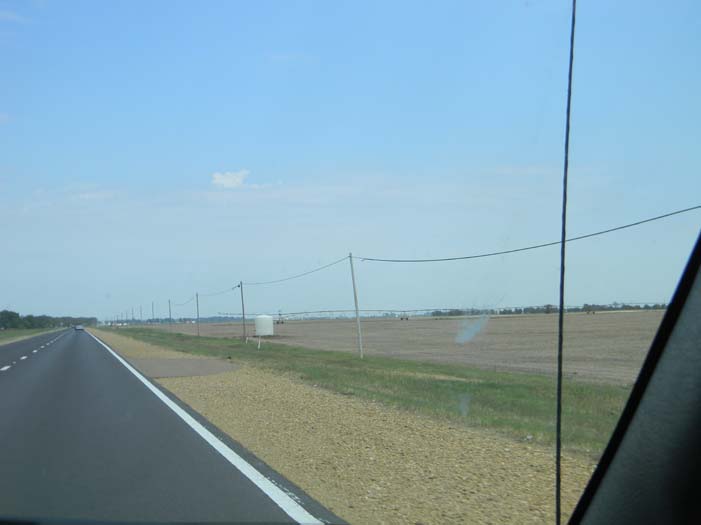Recording with the Big Dogs before You’re Ready, And the Longest Hour of My Life
It was sometime late in the summer of 2002 and I had already been in Nashville for a couple of months when I got a phone call from my friend “D”. He had been hired by a producer at a recording studio on Music Row to lay down some lead guitar tracks on a couple of songs and, as he was trying to help me become established in the Nashville music community, thought this might be a good opportunity to break me into the world of professional recording. Apparently there were two songs that would be in need of lead guitar, one being an original by a Nashville writer, the other being a cover of the Bonnie Raitt song “Something to Talk About”. As I had some experience playing slide guitar, and he had some pull with the producer, he thought it would be a good idea for me to learn the slide parts and sit in on the track. Piece of cake, right? I had a couple of days to prepare, so I began wood shedding the song.
A couple of days later I met D at his house and we drove into town, arriving at a large, nondescript looking white building on Music Row. We carried our guitars in and walked down a long hallway past several recording studios, the activity inside them visible through large plexiglass windows. Whatever small amount of the jitters I was feeling in the parking lot was now replaced with intimidation and a growing amount of “freakedoutedness” as we entered a large control room with several gold records on the wall. D introduced me to Greg (the engineer/producer) telling him “My friend Eric here is a decent slide player and I brought him along to play on the Bonnie Raitt song.” “Sounds good.” he replied. He then introduced me to Donnie, the only other person present in the studio, telling me that he was a great song writer and that I had probably heard some of his songs on the radio over the years. I was also informed that he had written one of the songs we were working on today and both songs were demos for a female artist he was working with. Can we add a little more pressure here please?
Greg led us into a large live room adjacent to the control room which was visible through a large Plexiglas window and pointed to an old Fender amp stating “After you tune up you can play through that.” After tuning my old Strat I plugged in and grabbed a pair of nearby headphones. By now Gregg and D had returned to the control room and I could hear Greg’s voice coming through the headphones “Play a little so I can get a level on you.” I started playing some slide licks and quickly realized the amp had little to no sustain. “Okay, I’ve got a level. Are you ready to make a pass?” “Okay” I sheepishly replied, and with that the count off to the song began. All the tracks to the tune had been previously laid down except for the lead guitar and I began playing the opening riffs at four bars in, just like the record. Or so I thought. The audio in my headphones seemed to stop almost as quickly as it had started, interrupted by the sound of Greg’s voice “It sounds like your intonation is off a little. Why don’t you check your tuning.”
“This is just great!” I thought as a little sweat broke out on my forehead, “Okay, give me a minute” and I proceeded to plug into a tuner and retune my guitar. “Okay, I’m good to go” and with that we were on to take two. This time Greg let me get a little further into the song before again shutting me down, “Your pitch is still off. Try it again.” Okay, this is getting ugly. After a couple more failed attempts ended in a similar fashion, D entered the tracking room to help me out. “Show me what you’re playing on the intro?” he asked, and I proceeded to play the intro. “No wonder it sounds out of tune, this song is in Ab. Let’s try putting a capo on the first fret.” Of course I should have known this, and this was perhaps the first moment I began realizing I wasn’t as prepared for this world as I thought I was. I put on the capo and D returned to his vantage point next to Greg in the control room on the other side of the Plexiglas window.
Apparently my attempts with the capo weren’t much better as take after take continued to end prematurely. One more time D came back into the room to offer advice. “Try putting a slow vibrato on the end of the long notes. It will help you be more in tune.” While his advice was correct, I was still unable to deliver what was needed and my passes continued to fall short. Each take continued to end abruptly with me looking up to see Greg lightly smiling and shaking his head saying things like “Intonation”, “Try it again”, or “Sorry, it still sounds out”. D was standing next to Greg at the control board with similar facial expressions, and while they both exuded great patience, the look on Donnie’s face from his seat directly behind them was that of annoyance and frustration.
Finally, after about an hour of this, probably the longest hour of my life, I had made one complete marginal pass on the tune. “I think we got it as good as we’re going to get it.” were the last words I heard through the headphones and, in a state of total defeat and exhaustion, I took off my guitar and walked into the control room to face what I expected would be an execution squad. “Don’t worry, you did the best you could, it’s your first time recording in Nashville and you were nervous.” said D trying to comfort me. “You could tell I was nervous?” I asked ignorantly. “We could see you sweating bullets in there.” he said with honesty. “Your asshole puckered up so tight you couldn’t have shoved a number two pencil in it.” Yeah, that about sums it up.
As it would turn out, the tracks I laid down that day were completely useless, and they re-recorded them after I left. Looking back on that miserable experience, by far one of the most difficult and embarrassing moments of my musical career, I now know I was far from ready to work in a professional recording studio. Of course hindsight is 20/20 and it’s easy to look back and know what could be done differently. On the other hand, that recording session was a great teaching moment for me as before that day I had very little experience in recording studios. That day taught me that I still had a lot to learn and made me all the more determined to learn it.
Freddie the Bluesman and My First Gigs in Nashville
The names of some of the musicians in this story have been changed to protect the innocent guilty.
I first arrived to my new home in Gallatin, TN, some 30 miles north of Nashville on a warm summer night in June of 2002. My family and I had just spent two days driving across the country with all of our personal belongings stuffed into the back of a rented Ryder truck and, despite being exhausted, we unloaded the truck at about 8 PM before collapsing into a deep sleep. All I knew about this new world called Nashville was the vague description of a gigantic music community conveyed by my friend “D”, a world which I knew little about, but one I needed to explore quickly. While we did have some savings, employment was a priority, so after a day of unpacking, we ate dinner, took showers, and headed for the city to start getting acclimated.
At some point during the drive in we stopped and picked up a copy of “The Scene”, Nashville’s biggest arts and entertainment newspaper. The words “Open Blues Jam 9 to 1 at The French Quarter” seemed to be calling my name from a section of club listings, and that would be our first stop. We walked into the dimly lit room to see a crowd of 10 or 12 listening to a four piece band meandering through some blues standards. After a while they called me up and, not knowing a soul in the place, I played two or three songs which, to my relief, were well received. Upon returning to my table, a moderately well dressed gentleman approached me and said “Hi, my name is Freddie. I really enjoyed your playing. I’ve got my own band and we are in need of a guitar player. Are you looking for a gig?”
I couldn’t believe what I was hearing. Fresh off the boat and without a job in site, this seemed too good to be true. Now keep in mind that I still didn’t know how the Nashville music scene or community worked, so any gig being offered seemed like a good thing. “Yeah, I’m definitely interested in doing some gigs.” And with that we exchanged phone numbers. Of course I would later learn that in Nashville not all gigs are created equal (more on that later). After chatting with Freddie for a while the next day I accepted his three or four upcoming local gigs and agreed to attend a few rehearsals with his band to prepare. The next day I met him at a Mini Mart where he gave me a CD of his material. Always wanting to be prepared, I went home and anxiously dug in. This was where I would receive my first surprise.
After popping the disc into my CD player I began to listen to a marginal recording of my new “band” and was a bit disappointed. The songs weren’t all that great, the musicianship was average at best, and the vocals were downright scary. “Well, maybe they’ll sound a little better live.” my wife, Kelly, optimistically encouraged. I learned the stuff and showed up for my first rehearsal at Freddie’s home south of Nashville, guitar and amp and hand. Shortly after rehearsal began it became apparent to me that the level of musicianship in this band was unlike what I had previously heard at the Fiddle and Steel and other clubs around town when visiting the city a few months prior. And when I say “unlike” I don’t mean in a good way. Again, I chalked it up as “Maybe they’re holding back because it’s a rehearsal and will sound better live.” Of course in hindsight, I should have known better, but hey, I was new to town and just happy to have some gigs lined up.
That brings us to our first gig a couple of weeks and uninspired rehearsals later (and by the way, I did get paid something like $15 per rehearsal for gas money). The Radio City Café is a small, but friendly bar somewhere on the east side of the city, and while being inside the club itself felt fairly safe, the surrounding neighborhood streets did not. The other band guys were already there and, running a little late due to getting lost in this still unfamiliar city, I quickly set up my gear after a brief reprimand from Freddie for my tardiness. Then Freddie said “Okay everybody, let’s have our preshow band meeting backstage.” We followed Freddie to the “backstage“ area (otherwise known as the kitchen of this fine establishment) to engage in Freddie’s little pep rally. “Okay everybody, we’re going to play the first two songs back to back and then I’ll address the crowd. We’ll play the third song and then I’m going to tell a joke. At the end of the joke I want you (points at drummer) to play a little ‘ba dat boom’ you know, like they sometimes do on the late show. Keep an eye on your set lists, I’ve made notes where I’m going to pause to speak and tell jokes.” Oookaaay. “And one more thing, I want everybody to walk out onto the stage in the right order, in other words, Joe, because you’re on the furthest side of the stage you should go first.”
This all seemed a little overproduced and over-the-top for the gig at hand, but hey, you can’t fault the guy for taking this $20 dive gig in East Nashville as serious as a show at the MGM Grand. To become successful, one must project a successful image at all times, right? So we walked out onto the stage single file and barreled through the first two poorly written blues numbers, after which, the audience of my wife plus 12 went mild. Freddie introduced himself and we played the third number which was followed by his first joke. While I can’t remember the specifics of the joke, I do remember that it was long, rambling, and not the least bit funny to me or anyone else in the place. The drummer’s “ba dat boom” didn’t help much either. We dug back into a couple of more songs which, unfortunately, were also played with no more power or conviction then the weak renditions we had limped through at the rehearsals. So this was the show, we would play a couple of uninspired songs, then Freddie would tell a bad joke, a couple more songs, more bad jokes. The jokes were so bad that, after a while, you could hear groans from the crowd as soon as they realized he was going to tell one.
Still, bad jokes and all, I did manage to have some fun, after all, I was now playing in Nashville so I was pretty excited because of that fact alone. Plus, sometimes when you’re playing with a band on stage it’s hard to be objective about the overall situation. I finished out the night, loaded out my gear, got paid my $20 and hopped in the car with Kelly for the 45 minute drive home. The gig had been awkward and we began the drive with a deafening silence which I bravely interrupted by asking “So what did you think?” “Well, you were good. Freddie, not so good. He can’t sing very good, the songs are terrible, and his jokes are downright painful. The drummer was pretty bad as well.” she answered honestly. “Yeah, I was kind of afraid that’s what you’re gonna say. I guess I’ll give it one more shot.”
That one more shot turned out to be a gig back at the French Quarter a couple weeks later. It just so happened that on the night of this gig my friend “D” was playing the Opry and had invited Kelly to go along, so she didn’t arrive at my gig until near the end of the show. She didn’t miss much. While they were getting the royal treatment on the other side of town, I was living a nightmare that was literally an exact duplicate of my first gig with Freddie, only in a nicer club. I mean, it was carbon copy, the same preshow meeting, single file onto the stage, same type of milk toast performance, same bad jokes, same “ba dat boom” following the same bad jokes. Oh yes, there were a few subtle differences; this club, despite being considerably larger than the Radio City Café, had an even smaller crowd (I think six was the magic number on this night), it was in an even scarier part of town, and it had a great PA system which allowed every nuance of Freddie’s bad vocals and jokes to be heard with exceptional clarity. By this point in time Kelly and I had more thoroughly explored the Nashville club scene and had a better idea of what kinds of musical situations might lead somewhere. It was now obvious that this situation wasn’t heading in a very good direction. So by the time I was walking to my car and Freddie approached me I was basically ready to give my notice.
Then comes one last surprise. “I need $20 to pay for house sound.” He states matter-of-factly. “What? I thought you were walking out to pay me.” “No, I can’t pay you on this gig. To play here, we have to pay a house sound fee of $100, that’s 20 bucks each.” My look of confusion might have caused him to rethink his strategy and he then blurted out “I’ll tell you what, instead of paying you for the next rehearsal, I’ll just put that money towards the sound fee.” He offered. “That would be great Freddie.” and with that, we drove off, laughing all the way to the poorhouse. I called him the next day and told him that I appreciated him giving me a chance, but his band just wasn’t right for me at this point in time. I had given it my all, and while the music had been largely uninspired, it was the bad jokes that were killing me. I literally could not take one more night of those bad jokes. It was time to see what else this town had to offer.
Nashville Climate For Northerners; A Reversal of Seasons
After spending my first 35 years living in New England, getting used to the humid subtropical climate of Nashville took some effort. Compared to middle Tennessee, spring through fall in the Northeast is quite mild, while the dreaded winter months have often been compared to those of Canada or Siberia. Those brutally cold and frigid winters can sometimes begin as early as mid-October and last all the way through April on some years. Snowstorms, ice storms, daily high temperatures in the 20s, teens, or less, and brutal nor’easter’s are often daily occurrences for months on end. And then finally, the snow starts to melt, the birds return, the trees begin to grow leaves again, and spring is upon us. Of course Spring can also be a cold wash out with temperatures only reaching the 50s accompanied by the kind of rainfall that could rival Seattle. On years where this happens, it seems like it goes straight from winter to summer. I used to think, before I 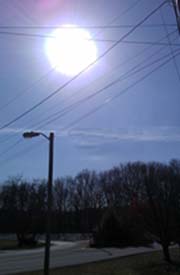 lived in the South, that New England summers could get too hot, but in hindsight I was just being a baby. How I long for those pussified summers now. Fall in New England is arguably the best weather of the year. Cool, dry, great weather to be outdoors.
lived in the South, that New England summers could get too hot, but in hindsight I was just being a baby. How I long for those pussified summers now. Fall in New England is arguably the best weather of the year. Cool, dry, great weather to be outdoors.
That’s all behind me now. For the climate of Nashville, my new home, is radically different, and one that requires a whole new mindset. The winters in Nashville, if you want to call them that, are almost more like spring in New England. While it can get cold, occasionally getting down into the teens or low 20s, it is not uncommon to have several warm sunny days in each of the winter months, temperatures sometimes even climbing into the 70s. It might snow once or twice, maybe an ice storm or two, some rain, but in general I find these winters very livable compared to those of my New England years. Spring can be real nice temperature wise, but this is also our primary tornado season and, after this year, flood season. This brings us to summer, or as I call it, hell on earth. Beginning in June, or sometimes as early as mid-May, it’s 90° plus and humid every day for what seems like an eternity, typically all the way through September. Some get used to this heat and humidity but I can’t stand it, to me this is a New England winter in reverse.
During the cold wet winter months of New England, outdoor activities all but grind to a halt (except of course for those who love to ski or snowmobile). In general, except for commuting to work, most New Englanders stay indoors during this time of year, waiting for it to warm up a bit to resume outdoor activities. Now that I live in Nashville this is how I approach summer. In general, it’s just too hot and humid for me to enjoy the outdoors during this time of year, and I find myself waiting for it to end so I can again enjoy the outdoors on a regular basis. I literally get cabin fever during the summer. But then it finally ends with the onset of fall, my favorite time of year here, by early to mid October. Of course we have to be on our toes in November for our secondary tornado season.
So I don’t know if it’s just me or if other transplants feel this way, but as far as the climate of middle Tennessee goes – Fall is great, Winter is palatable, Spring can be hairy, but Summer just plain sucks. I’m glad it’s finally over.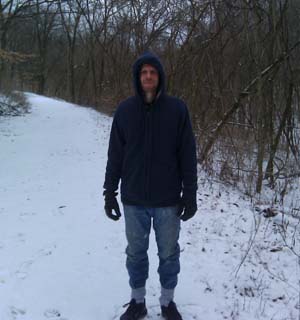
Auditioning for the Big Shots: What Have Been Your Experiences Auditioning in Front of Music Reps or Performing in Showcases?
This is another question I was asked in an interview by Wendy Willis for her upcoming book ‘Making It In Nashville‘. The question made me think of a few different scenarios regarding how auditions are conducted in the Nashville music industry. The following exemplifies two of the most common types of auditions.
The Gretchen Wilson Cattle Call
By 2004 I had already been in Nashville for a couple of years when Gretchen Wilson’s ‘Redneck Woman’ hit the airwaves, launching her into immediate super stardom. A few weeks after this song debuted on the radio, I heard through the grapevine that she was holding auditions to find an acoustic guitar player for her touring band. By the time I heard about these auditions, the rest of this band had already been assembled. By making a few phone calls I was able to track down a contact within her camp. During a very brief phone conversation he gave me the names of two songs to learn, ‘Redneck Woman’ and ‘When I Think about Cheatin’, and a timeslot to audition at the Sound Check rehearsal facility. I learned the songs and showed up to Sound Check about a half hour early on the day of my audition. As the auditions were running late, I picked a spot in the hallway outside of the rehearsal room amidst a sea of other hungry guitarists, all with their acoustics in hand, many wearing what was obviously their best stage clothes.
The high point of this day for me was not actually my audition, but listening to the band Journey rehearsing in one of the other rooms down the hall. They sounded magnificent and were truly inspiring! I even got to meet Neal Schon when they took a break. Standing outside their practice room door and listening to them play helped me to take my mind off of the nerve-racking moment that still awaited me. But this brief detour into my rock ‘n roll dreams of yesteryear ended when my name was finally called. I entered the cavernous room, which I believe was the biggest room at the facility, and the intimidating scene quickly came into focus. A large stage filled with gear and musicians and fronted by a substantial PA system was staring me in the face from the opposite end of the room. I was greeted near the doorway by Gretchen’s manager who chatted with me briefly, asking a few questions about my experience. I headed to the stage where the musicians that comprised her nearly complete touring band, none of whom I knew, patiently waited. After plugging in and getting a quick monitor level, Gretchen entered the room and sat on a stool about 30 feet in front of the stage.
So there I was, standing on the stage surrounded by strangers, and performing for an audience of country music’s newest superstar and her management. The band counted off ‘Redneck Woman’ and I began strummin’ away. While sitting on the stool, she belted out the song as if she were an arena filled to capacity, watching my every move. The song ended to a stone cold silence which was quickly interrupted by somebody yelling out ‘When I Think about Cheatin’, which was immediately counted off. That song ended, seemingly as soon as it started, and my audition was over. A couple of the players said “Good job” and her manager said “Thanks , we’ll let you know something by the end of the week.”
Fearing that I didn’t make the grade, I left the rehearsal hall and drove home not having a clue about how I was perceived. They did call me a few days later to notify me that I was not chosen. I remember hearing later that the player they chose for the spot had already been chosen before that day of auditions. Perhaps they were trying to see if there were any other options, looking for a backup, or appeasing the management. All in all, it was a fairly miserable and stressful experience, but it was educational. This was my first cattle call style audition, and while it did not land me the gig, it did help prepare me for future auditions. Since that day, I’ve done several other cattle call style auditions, all of which were somewhat similar. Until you ever get to do one of these, the term ”cattle call” will only have a vague meaning to you. But after you stand in the middle of a long line of auditioning players, get quickly corralled in it out of the feeding lot, tagged, tested, and sent on your way, you will immediately understand.
Rhett Akins Showcase for BNA Nashville
It was late summer, 2005, and right in the middle of touring season, when Rhett Akins, one of the artists I was working for at the time, told me we needed to prepare for a record label showcase. His management had helped him gain the attention of Joe Galante and some other executives from the record label, BNA. We had about two weeks to prepare for it, so a couple of rehearsals were scheduled for us to build and hone a short set of his strongest material that would hopefully land him a new deal.
His management made arrangements for the showcase to take place in a small comfortable nightclub located on Third Avenue in downtown Nashville. We arrived to the venue early in the afternoon on the day of the showcase, loaded in our stage gear and monitor rig, and began setting up. We did a sound check and rehearsed a few of the tunes. It was tough to get a good sound in this particular room as the acoustics were less than desirable, but after several adjustments, we arrived at an acceptable place. After sound check we chilled for a bit, ate some dinner, and waited for downbeat.
The showcase was scheduled for seven o’clock, and around six o’clock some patrons began to arrive. It had been encouraged for us to all invite and bring as many friends and family as possible to help create a warm and inviting atmosphere for the big wigs. The turnout was pretty good, and the club was near full just a few minutes before showtime when Galante and his entourage arrived to be seated at a reserved table, one that had been strategically chosen for sight and sound.
Just a couple minutes before we hit the stage we all gathered in a back room to have a quick pep rally, kind of like a football team going into one last huddle before game time. If Rhett was nervous, he wasn’t showing it, he was cool as a cucumber. I was probably more nervous than he was. Dressed in our best, we hit the stage hard and fast, and the first two songs, played back-to-back, were over before I knew it. The crowd roared with approval, and Rhett began to turn on the charm, addressing the room as a whole and putting everyone at ease. He had been working out hard all year and was in great shape, not only giving off the vibe of a superstar, but also showing off a youthful physique, similar to that of his college quarterback days of yesteryear. We stomped through the rest of our 50 minute set with Rhett talking occasionally between songs, even getting some laughs out of the table of executives. The set ended and we began to break down our gear while Rhett courted the table of potential business partners.
As far as these kinds of showcases go, this one went off without a hitch. Rhett performed brilliantly, the band played well, the crowd loved it, and, more importantly, the folks from BNA loved it. After a couple more weeks of negotiations, Rhett was signed to BNA Nashville. So I guess we passed the audition!
What have been your audition experiences been like?
Losing Your Hair? Balding in the Middle? Learn How to Just Let It Go!
In this day and age, looking the part is often just as important as playing the parts for many professional musicians. This is equally important for those who have not yet achieved a career in music, but are working towards one. While being proficient on your instrument and possessing good social and networking skills are obviously important, in the world of live music performance, your appearance can sometimes be a deciding factor on getting the gig.
It’s easy to find the right clothes, and it’s a well-known fact that working out and having a good physique will make those close “hang well” on your frame. But for some (men especially), the hairstyle, or lack thereof, can be a dealbreaker. I’m not talking about the 20 something’s with the $300 spiky mod looking haircuts. As much as I don’t care for that look, they are not the biggest offenders of the modern day hair wars. In my opinion, it’s the guys who are losing their hair but living in denial that really need to rethink the current state of the top of their heads.
It’s no secret that many of us have lost, are losing, or will lose much our hair over the course of our lives. For some it begins as early as late teens or early 20s, for others it might not happen until they’re in their 30s or 40s, while others manage to hold on to most of their mop 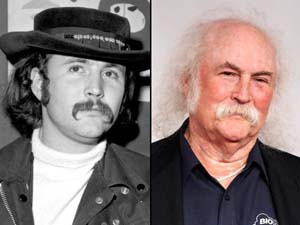 until old age. Sometimes this hair loss happens rapidly, over several months or a couple of years and sometimes it can occur very slowly and gradually over decades. Some just get a little bald patch near the back of our head, while others are stricken with more of that dreaded “parting of the seas” look.
until old age. Sometimes this hair loss happens rapidly, over several months or a couple of years and sometimes it can occur very slowly and gradually over decades. Some just get a little bald patch near the back of our head, while others are stricken with more of that dreaded “parting of the seas” look.
Many musicians take great pride in their hair, often choosing a style that works for them in their younger years and sticking with that as they age. Some will sport short to medium length do’s while others choose to wear it long, anywhere from the mid-60s Beatles look all the way to full-blown hippie length. But if you are in the unlucky category that many of us fall into, that being the permanent hair loss club, these styles will begin to create a different effect and take on new meanings as these 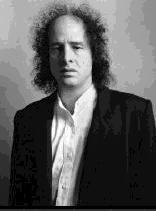 hair follicles slowly begin to vanish forever.
hair follicles slowly begin to vanish forever.
Are you the guy with the comb-over? If you are, you’re not fooling anyone. Maybe you’re the guy that had hair like Greg Allman when you were in your 20s. Oh, how the girls loved it back then. But how are you being perceived now when that part between you’re neatly combed and blowdried shoulder length blond hair rival’s the San Andrea’s fault? Probably more like the friendly lion in the wonderful Wizard of Oz. There’s always a baseball cap. But eventually, as people notice over time that you’re never seen without one, it will become a dead giveaway that you’re hiding something. You could always grow a beard and start wearing a cowboy hat, sporting your version of some kind of half assed Travis Tritt look, but that’s a pretty big commitment, and not that hip anyway. Not to mention, when you commit to the whole hat thing, what happens when you go swimming? What happens the first time you sleep with a new girlfriend?
Face it, none of this works. Yet, somehow, we see people that look like this all the time. Well I have some 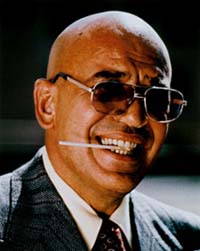 great news for all of you who are fighting this futile “battle of the bald”. There is a way out, and I’m not talking about hair transplants, wigs, or toupe’s. Just let it go. That’s right, shave it off. Bald is beautiful, baby. For proof, look no further than Telly Savalas or Bruce Willis.
great news for all of you who are fighting this futile “battle of the bald”. There is a way out, and I’m not talking about hair transplants, wigs, or toupe’s. Just let it go. That’s right, shave it off. Bald is beautiful, baby. For proof, look no further than Telly Savalas or Bruce Willis.
Growing up, I had a thick head of hair, and by the time I was 15 had already experimented with growing it long. I went in and out of short hair and long hair mode for a few years before going all out in the late 80s, when I began sporting a full-blown Richard Marx style mullet. Of course, at that moment in time that style was in, so spending 20 minutes with a can of moose and a blow dryer to get ready to go out for the night, or gig, was completely natural. Of course I kept this “helmet do” well into the 90s, long after it had become unfashionable. Then, in my mid-20s, it all started going quite badly.
Over a period of about a year, I lost most of the hair in the middle of my head. It happened so quickly that I hardly even noticed at first. But then when my girlfriend started telling me that I was beginning to look like Michael Bolton, I knew something was wrong. On a bad day, my massive bouffant do, once reminiscent of Peter Frampton’s early look, began to look more like that of the comedian, Gallagher. Comments like “Here comes Billy Crystal” or “Is that Stephen Wright?” and even “When did David Crosby lose all that weight?” also caused much embarrassment. So I began a slow transformation. I attempted to minimize my baldness by wearing hats, doo-rags, even at times pulling it back into a ponytail. But ultimately, this wasn’t working. Half the time it just looked bad.
So finally, around the year 2000, I took it down to a fairly short length, just an inch or so on top. It was better than having “Gallagher syndrome”, but still not quite right. Shaving it down to the scalp was the only thing left to try. At first, I was horrified at the thought of doing this, but with a little prodding from my wife, I went for it. Boy am I glad I did. I instantly realized that bald works for me. Having a bunch of hair on the sides with the bald spot in the middle was simply drawing attention to the fact that I was balding. Lose all that hair, and you create the perception that you are bald by choice, not because of nature. In other words, nobody can tell that all your 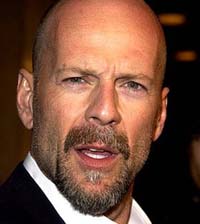 hair fell out. Now when I look in the mirror, I feel younger.
hair fell out. Now when I look in the mirror, I feel younger.
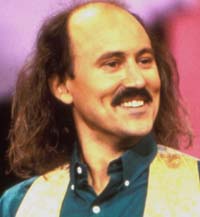 Plus there are many added benefits. Showers now take five minutes. I save a small fortune on shampoo and conditioner and haven’t bought a comb or a hair brush in decades. Getting ready to go to work or out on the town now only takes seconds. It’s harder to get dandruff, and my head is now essentially “lice-proof”. But most important of all, I no longer look like an idiot.
Plus there are many added benefits. Showers now take five minutes. I save a small fortune on shampoo and conditioner and haven’t bought a comb or a hair brush in decades. Getting ready to go to work or out on the town now only takes seconds. It’s harder to get dandruff, and my head is now essentially “lice-proof”. But most important of all, I no longer look like an idiot.
So which guy are you? Are you still clinging to the past, or have you embraced your inner baldness? Whose look do you relate to more, Stephen Gallagher or Bruce Willis? It’s not too late to save yourself. So what are you waiting for, get out those clippers and get busy!
Endless Boogie Rocks the Fillin’ Station – A Little Music for the Soul (Part Two)
Saturday night was the first outing for my new band ‘Endless Boogie’, and fun was had by all who ventured out to party with us at the Fillin’ 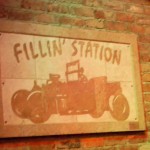 Station in Kingston Springs, TN. The club, owned by Patrick Weickenand, was the perfect setting for my long awaited rock n’ blues experiment. Small, intimate, and loaded with character, the club is housed in an old garage right out of yesteryear, hence the name, and a favorite watering hole for the locals on the west side of town.
Station in Kingston Springs, TN. The club, owned by Patrick Weickenand, was the perfect setting for my long awaited rock n’ blues experiment. Small, intimate, and loaded with character, the club is housed in an old garage right out of yesteryear, hence the name, and a favorite watering hole for the locals on the west side of town.
Our trio started out with a couple of instrumentals to get things going before switching to some vocal-based tunes. The place wasn’t too busy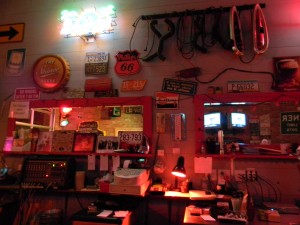 during our first set, so Patrick, who was working the bar, had time to sit in on harp for a few tunes in between slinging beers. Patrick is one of the nicest guys you’ll ever meet, and undoubtedly contributes greatly to the warmth and charm of this unique place. Anyone who has ever played the Fillin’ Station knows that Patrick is a great harp player, and he’s frequently requested to ‘sit-in’ from behind the bar with many a band. So several times throughout this night he joined in for some fun jams (check out the video below).
during our first set, so Patrick, who was working the bar, had time to sit in on harp for a few tunes in between slinging beers. Patrick is one of the nicest guys you’ll ever meet, and undoubtedly contributes greatly to the warmth and charm of this unique place. Anyone who has ever played the Fillin’ Station knows that Patrick is a great harp player, and he’s frequently requested to ‘sit-in’ from behind the bar with many a band. So several times throughout this night he joined in for some fun jams (check out the video below).
Fran Breen (drums) and Mike Chapman (bass), aside from being good friends of mine, are seasoned pros and I was thrilled to have them on the gig. Talk about groove, boy these guys can lay it down! I had an absolute blast playing with them, and we plan to do this on a regular basis, schedules permitting. As of right now our next outing will be Friday, December 3rd back at the Fillin’ Station.
By the third set, the place had erupted into a full-blown dance party which held through to the end. People were even dancing on Whipping Post (if you’ve ever tried to dance to this song you know why this is significant). All in all it was a triumphant beginning to this new project, a project born out of my need for “a little music for the soul”.
Eric Normand and Endless Boogie – A Little Music for the Soul
As a professional freelance musician working and living in Nashville, much of the work I perform is for other people’s entities, as is true for many hired guns. I’m not complaining mind you, this is how the bills get paid. My regular gig as tour manager/guitarist for Rhett Akins occupies many weekends throughout the year, and sporadic nightclub gigs and songwriter recording projects help to fill in the gaps. As rewarding as some of this work can be, it all comes under the heading of ‘gun for hire’ which means I must meet somebody else’s expectations, as they are footing the bill, often adjusting my musical tastes and desires to fit the gig.
So whenever it’s feasible, I take on gigs purely for my own musical expression, a little ‘music for the soul’ as I call it. Now that fall is here and the annual touring/festival season is drawing to a close, I’ll have a little more time for these kinds of endeavors. With that, I’m excited to tell you about my new project – Eric Normand and Endless Boogie. The concept of this band is simple. I will play only music that I enjoy playing, with people whom I enjoy playing, in venues that are enjoyable to play.
Growing up in the 70s and 80s I always looked back a few years to find my musical heroes; Jimi Hendrix, the Allman Brothers, ZZ Top, John Lee Hooker, and to this day this is still some of the most expressive music I ever play. So in my new Nashville based ‘fun band’ that’s just what were going to do. The song list will contain Hendrix classics like Little Wing, Voodoo Child, and All along the Watchtower, Allman Brothers classics like You Don’t Love Me, Ain’t Wastin’ Time No More, Melissa, and Whipping Post, classic blues songs like Freddie King’s Going Down, John Lee Hooker’s Hug You, Kiss You, Squeeze You, and even a few of my favorite instrumentals by Miles Davis and The Meters. Needless to say, we will put our own spin on these.
As I live in Nashville, and this kind of song list will not command top pay, getting great players to commit to a gig like this isn’t easy. All the best players are usually pretty busy taking the most lucrative gigs offered, and even if you get them to commit, something always seems to come up. So you either have to have two or three players deep on each instrument that know your material, or you have to wait till the last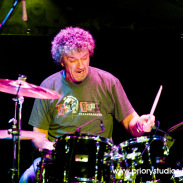 minute to book the players. I got real lucky for this first outing of Endless Boogie as a couple of my good friends, Fran Breen and Mike Chapman, just happened to be available.
minute to book the players. I got real lucky for this first outing of Endless Boogie as a couple of my good friends, Fran Breen and Mike Chapman, just happened to be available.
Fran Breen is a world-class drummer from Ireland that has worked on and off in the Nashville music industry for over 20 years. He’s played with a few major artists like Lucinda Williams, Nancy Griffith, Shelby Lynn, and is also an accomplished session drummer having played on countless projects over the years including the soundtrack for the movie “The Commitments” . He’s a top notch groove machine, especially when it comes to blues and funk, and I’m thrilled to have him on the gig. (Plus he is really funny and has the coolest Irish accent.)
Mike Chapman is one of the best bassists Nashville has to offer, and another ace in the hole who happens to be a good friend of mine. Mike’s first big gig was with Hank Williams Jr. in the early 80s, since which time he has played on innumerable A-list recording sessions ranging from literally all of Garth Brooks recordings to Leanne Rimes, Brooks & Dunn, Huey Lewis and countless 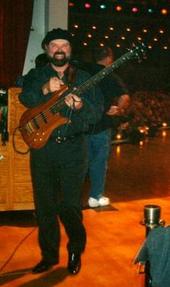 others. Mike has played bass on over 30 number 1 singles and the albums that he has played on have sold over 150 million copies. If it sounds like I’m bragging a little bit about these guys, it’s because I am. I mean how often does one get to say “My drummer played on the Commitments soundtrack” or “My bass player has been heard on 150 million albums”?
others. Mike has played bass on over 30 number 1 singles and the albums that he has played on have sold over 150 million copies. If it sounds like I’m bragging a little bit about these guys, it’s because I am. I mean how often does one get to say “My drummer played on the Commitments soundtrack” or “My bass player has been heard on 150 million albums”?
The last ingredient for my first outing with ‘Endless Boogie’ is a fun venue in which to play. The Fillin’ Station, located on Main Street in Kingston Springs, is the perfect venue for an intimate night of exploratory rockin’ blues and funk jams. While playing on big tours in front of thousands of people can be exciting, sometimes the finer points of the music get lost in the ‘bigness’ of those events. To this day, my favorite musical settings are small to midsize nightclubs, for it is in these small-town bars and juke joints of the world where the magic really happens. The Fillin’ Station is owned by Patrick Weickenand, former member of Eric Burdon’s band ‘War’ and one of the nicest guys you’ll ever meet who also blows a mean harp from behind the bar from time to time. The club is small but comfortable, and has an adjoining outdoor patio which fills up with locals on many a night. The club is just 25 minutes from downtown Nashville (exit 188 off of I40 west) and features live music four to five nights a week year-round, never with a cover.
I’ve been wanting to put together a group like this for a few years now, toying with the idea periodically, but never quite getting organized enough to make it happen. But I’ve realized that this is just what you have to do in Nashville, you have to find a way to not lose sight of your own vision even while you spend most of your time working for other people. My musical dreams at this point of my life are quite simple, I want to play the music that I love to play, the way I want to play it, hopefully taking a few others along for the ride.
So that’s it, all the essential ingredients are in line for an expressive night of music – songs I enjoy playing, people I enjoy playing with, and a place I enjoy playing at. Our show will be this coming Saturday, October 16 from 7:00 to 11:00. I’m really pumped for this show, so if you live in the Nashville area come on down for a night of Endless Boogie!
Rhett Akins Tour 2010 Wraps up with Two Shows in Texas
October 8, 2010 – Dallas, Texas
We left Nashville Thursday at midnight, bound for two shows deep in the heart of oil country, the first being at the oversized dance hall, Cowboys Red River in Dallas, Texas. Our regular bassist, Clint Jacobs, absent on this particular run, I sat in the front lounge chatting with his sub, friend and longtime Nashville veteran, Mike Chapman for a bit before heading to bed. This trip would normally take about 10 to 11 hours, but at about 5 AM I awoke and realized we had been stopped for a little bit. I drifted off for a while and when I got up around 10 I learned that Steve, our bus driver, got stuck in a massive traffic backup for three hours in the middle of the night, the result of an overturned tractor-trailer that had blocked the interstate. Scenarios like this are why we always allow for extra travel time on these trips. Nevertheless, the extra three hour wait added on to the middle of this 700 mile drive had left Steve exhausted, and we finally pulled into Dallas around 1:30.
As we entered the dark Honky Tonk, we noticed that musky stale beer odor inherent to these kinds of places, the kind of deep rooted 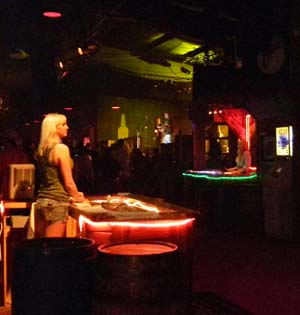 lingering odor that takes decades to create, and while barely noticeable amidst the hustle and bustle of nighttime business, is almost overbearing during the empty daytime hours. While we were setting up, Rhett had the runner take him on a brief tour Dealey Plaza, the infamous location of the assassination of JFK. A little while later he returned with some memorabilia, as apparently a JFK assassination history buff has some kind of ‘merch table‘ at this location. I’m not sure if this is somebody’s desire to inform the masses of this tragic conspiracy, or simply capitalism at its worst. (Maybe it’s a little of both.)
lingering odor that takes decades to create, and while barely noticeable amidst the hustle and bustle of nighttime business, is almost overbearing during the empty daytime hours. While we were setting up, Rhett had the runner take him on a brief tour Dealey Plaza, the infamous location of the assassination of JFK. A little while later he returned with some memorabilia, as apparently a JFK assassination history buff has some kind of ‘merch table‘ at this location. I’m not sure if this is somebody’s desire to inform the masses of this tragic conspiracy, or simply capitalism at its worst. (Maybe it’s a little of both.)
Other than watching a little bit of a fascinating assassination documentary, the rest of this day, and night for that matter, were rather uneventful. I wish I could say that it was an exciting memorable show, like most of our shows, but it wasn’t. The audience just kinda laid there. Don’t get me wrong, the 1500 or so in attendance danced and drank, and even made some noise after some songs, it was just one of those nights that felt like it never quite got there. I later reiterated to Rhett one of the tour’s long standing inside jokes “Out of all the shows we’ve ever done together, that was definitely one of them.”
Onward to Baytown
Baytown is a suburb of Houston, and a city of roughly 80,000 deep in the heart of oil country. We arrived to a hotel parking lot in the wee hours of the morning and taxied the bus over for load in around noon. On the previous day, everything had gone according to plan with no surprises, while this day would turn out to be full of surprises, the first being my discovery of a miscommunication regarding our ‘bus stock’. Our bus stock is a list of beverage and food items which appears on our rider, and is required, in most cases, to be delivered to our bus upon arrival as it serves to be lunch for our crew. I never got the memo that they wouldn’t be providing this and, fortunately, they were gracious enough to send somebody for it at the last-minute.
The next surprise came a couple of minutes later when the event coordinator informed me that they were having problems with the rented generator. It turns out that the generator rental company arrived earlier in the morning to drop off the generator, and then left without showing anybody how to work it. Around the same point in time I was introduced to the house sound technician whose introduction consisted of “Glad to meet you, I hope you brought a lot of patience with you because we’re running way behind.” “Glad to meet you too.” Next would come what was perhaps the biggest hurdle we would have to overcome on this day that was quickly evolving into what I commonly refer to as “a challenge” otherwise known as a good old-fashioned pain in the ass. That being, the stage from hell.
Upon setting foot upon this tin nightmare, I was baffled to see a gaping four-inch wide “space” that ran lengthwise across the 30 foot stage at about 5 foot intervals. “Well that’s a great way to break an ankle if I’ve ever seen one!” I commented to the promoter, who acknowledged “Yeah it is, I didn’t notice that before.” To make matters worse, a round piece of steel pipe protruded upward from this “space” at 6 foot intervals, serving as a strategic array of would-be landmines for everybody to trip over for the day. After some discussion with the promoter, we determined that we needed some rubber mats or plywood to place on top of this unsafe deck. A little while later I discovered a huge role of thick old industrial carpet backstage and, while it initially looked like it might serve our purpose, I quickly discovered that it was full of “fire ants”. I also learned, very quickly mind you, that fire ant’s bite! The bites on my fingers and hand still swollen as I write this.
One of the event coordinators suggested some four by eight sheets of rubber matting and, after I concurred that it might work, he set out for Home Depot. Around this time, I asked Scott, our other guitarist and part-time “Macgyver” if he could try to figure out the generator issue. A little while later a truck arrived with 10 sheets of rubber matting and I began to direct some stagehands to help ‘rubberize’ our stage while Scott dug into the genie. A couple of hours later and the stage was covered with a solid rubber matting (we had to cut holes for the protruding steel pipe with a drill and utility knife), Scott had brought the generator to life, and we began our load in and sound check.
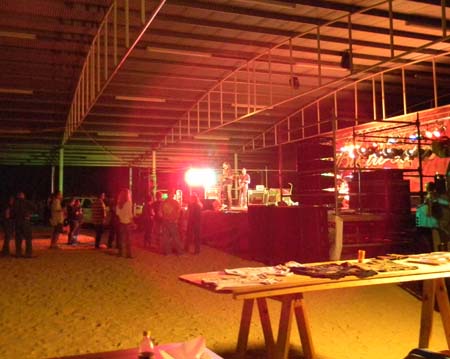 After the sound check, we all feasted on some locally famous barbecue, and went to the hotel for some downtime before the show. I returned to the venue around 7:30 hoping to catch some of up and coming and Nashville based Matt Stillwell’s, set. Unfortunately, because one of the other acts, George Dukas, was running late, their performance times were swapped, and I arrived after their show had already ended. We began our show at 9:30 on the dot, surprisingly right on time considering the chaotic mess of the day we had just encountered. This event was the annual “Helping a Hero Benefit” put on by the Baytown Police Department, and served to help raise money for a fund for families of officers lost in the line of duty. While the attendance was less than desired, the quality of the audience was anything but lacking. A handful of town folk that did show up spent quite a bit of money on some big dollar auction items for this great cause and stayed for the entirety of our 90 minute set. Mike Chapman, who had only played with us on a couple of other occasions, nailed the show to the floor, his 3+ decades working in the Nashville music industry recording with such giants as Garth Brooks, LeeAnn Rimes, and countless others, no doubt aiding in his proficiency.
After the sound check, we all feasted on some locally famous barbecue, and went to the hotel for some downtime before the show. I returned to the venue around 7:30 hoping to catch some of up and coming and Nashville based Matt Stillwell’s, set. Unfortunately, because one of the other acts, George Dukas, was running late, their performance times were swapped, and I arrived after their show had already ended. We began our show at 9:30 on the dot, surprisingly right on time considering the chaotic mess of the day we had just encountered. This event was the annual “Helping a Hero Benefit” put on by the Baytown Police Department, and served to help raise money for a fund for families of officers lost in the line of duty. While the attendance was less than desired, the quality of the audience was anything but lacking. A handful of town folk that did show up spent quite a bit of money on some big dollar auction items for this great cause and stayed for the entirety of our 90 minute set. Mike Chapman, who had only played with us on a couple of other occasions, nailed the show to the floor, his 3+ decades working in the Nashville music industry recording with such giants as Garth Brooks, LeeAnn Rimes, and countless others, no doubt aiding in his proficiency.
This stressful day came together as the result of a lot of teamwork. Scott, with some background in electronics, was apparently the only person on site possessing the knowledge it would take to make that generator come to life and power the show. The Baytown police went and purchased the rubber mats for the stage. Our bus driver, Steve provided some of the tools that were necessary for our rubber stage modifications. Matt Stillwell and band was gracious enough to perform their show two hours ahead of schedule. In hindsight, it’s funny, even kind of ironic, that while the day before had gone so smoothly, and it’s show had felt so sluggish (despite a crowd of almost 2000), that this difficult day, despite its low attendance and being full of problems, delivered a concert experience that was far more rewarding. Put these two wildly different events and shows together and you wind up with one great day and one great show – A fitting end to our 2010 touring season.
How Musicians and Entertainers Can Benefit from Being Physically Fit
Becoming a successful musician or an entertainer in the 21st century is a tough endeavor. It’s probably as difficult as becoming a successful actor in Hollywood. In this field of extreme competitors, you need to have every advantage you possibly can. Even if you aren’t going after the big prize, for many musicians, a lifetime of pursuing their craft will still take its toll. This is why it is in the best interest of most musicians to be physically fit.
If you are a musician, whether you play guitar, drums, sing, saxophone, or other, you inevitably fall into one of two categories; 1.) Professional musicians, semi professional musicians, and musicians aspiring to become professionals, or 2.) Amateur musicians, hobbyists, and musicians that play solely for expression, art, or the fun of it, regardless of compensation.
If you are either working as a professional musician, or aspiring to do so, you probably already know how competitive this field is (if you don’t, you might want to take a look around you). To earn a living as a musician in this day and age, or at least a partial living, a great many things must come into alignment. Talent, social skills, looks, longevity, and luck are some of the essential components. Since you really can’t control luck, and assuming you have some talent and social skills and are already honing those traits, that leaves looks and longevity up for grabs. This is where physical fitness comes into play.
Looking Good
I chose to address this factor first because so much of what happens in the entertainment industry is based on appearances. As superficial as this may be, it is simply a fact, and one that shouldn’t be overlooked. While I do feel that looks and talent shouldn’t have to be tied together, the focus here is on the music business, so I’ll save that discussion for another time.
We have a strange way of approaching how we look in our society, that being that we tend to put makeup on a pig. I’m sure you’ve heard that expression before, but here’s my spin on it. How many times have you seen some performer, whether on TV or in a nightclub, who has obviously put a lot of thought into his or her wardrobe and appearance? $300 haircuts, pre-ripped and pre-faded designer jeans, fancy shirts, eye-catching jewelry, makeup, even an obvious obsession with tanning is evident for some. Yet when you look at the performer’s arms , there isn’t a hint of muscle tone to be found anywhere. Even though they aren’t obviously overweight, you can’t help but notice their ass looks just a little too big for the outfit struggling to hide it. Or perhaps he or she has no ass all, flat as a board on the backside due to the fact that they have no muscles there either. Of course this description would describe many people in almost any field. As most Americans are now overweight, each year the numbers steadily increasing, so is our desire to attempt to mask this fact with fancy haircuts, designer clothes, spray-on tans, and makeup.
But if you are aspiring to be a professional musician, you are different than most people, you are in the world of showbiz. This means that, in many cases, your appearance is directly tied to your career, and sooner or later you will be judged on your looks. So rather than continuing to follow the trend of ‘putting makeup on a pig’ why not address the issue at its core and put more emphasis on physical fitness. There is a difference between being skinny, a little overweight, and being physically fit. I have been skinny for most of my life, but I have not always been fit. When you are physically fit clothes automatically hang better, your skin color looks better, and your face looks younger. People who are physically fit tend to have increased energy and stamina, and this helps to project a more youthful vibe in general. Not to mention the increased confidence and sex appeal that can come with being in great shape. With the music and entertainment industries now more competitive than ever, there is simply no excuse to not look as good as you possibly can. A fancy haircut and designer clothes aren’t going to fool everybody.
Longevity
To me, the need for longevity makes the best case for being physically fit, and this applies to all musicians, pro or otherwise. From the time we were teenagers, through our 20s, even into our 30s, typically, our bodies are still functioning under their original drivetrain warranty, meaning that, at least for most of us, things aren’t yet starting to go wrong on the grand scale that they eventually will. If you are a young person and reading this, you’re probably thinking “That’s the kind of crap my grandfather used to tell me.” Well I hate to say it, but ol’ grandpa was right. As our bodies age our joints begin to wear, we become more susceptible to injuries, injuries take longer to heal, and a whole host of other problems ranging from high blood pressure to heart disease and beyond start becoming more likely. I’ve had tendinitis for five years now, and sometimes it interferes with my playing. Some of my musician friends, after decades of problem free careers, are now starting to have their own problems too. Everything from back problems to carpal tunnel and even diabetes and strokes are now interfering with their careers and lives.
The effects of aging can and will happen to people from all walks of life, but the hard lifestyles of many musicians can further amplify the effects of aging. Being a musician is stressful, often requires extensive travel, and for many of us, requires a repetitive hand, arm, or leg motion that is certain to lead to problems. Being physically fit is the only way to combat these problems. Alcohol or drugs, whether prescribed or other, are only a band-aid, and for many, masking the pain in this way can lead to further injury. Being a career musician, I often have little to no choice about the gigs I need to take to make a living. Sometimes I will play a 3 1/2 hour show nonstop. This requires great stamina and, even though I am in good shape, sometimes my whole body aches after a long hard gig. How much worse would I hurt if I didn’t take care of myself? I still have to load my gear into my car regularly and my Vox amp weighs almost 100 pounds. Over the years, I’ve thrown out my back doing this on more than one occasion, being physically fit helps combat this as well. Regular exercise has been the best weapon against my tendinitis too. Without regular stretching and exercise it quickly becomes almost unbearable.
In the world in which we live and work, a world full of extreme competition, an extreme approach to health and fitness simply makes sense. Some people say that America has the best workforce in the world. If this is true, shouldn’t the best workers be in tip top shape? You can either continue ‘putting makeup on the pig’, or you can work towards becoming fit and give yourself a real leg up on the competition. Even if you don’t aspire to play professionally being fit will help ensure the likelihood of enjoying your hobby or art for years to come. As far as achieving an extreme level of physical fitness, there is no shortcut. It can only be achieved with good old-fashioned hard work which involves a lifelong commitment to regular exercise and healthy eating.
Do you want to look good when you’re 50? Do you want to still be able to play music effortlessly when you’re 60? I do.
Clarksdale, Mississippi – Exodus and Photo Journal
While we awoke Sunday morning in high spirits, we were sad to see this trip drawing to a close. What was originally planned as a simple three-day getaway wound up being a prolific, life-changing experience. We thanked Marc for her hospitality and informed her that the Shack up Inn had just become at least an annual destination for us. As we made our exodus, heading north on Highway 61, we again took in to view a seemingly endless sea of cotton. We basked in the memories of the trip for most of the five hour drive home, recounting several high points still fresh in our minds.
While our explorations may not have revealed every facet of this community, this it did reveal; Clarksdale, while being one of the poorest places we have ever visited (economically speaking), is rich in its heritage, rich in spirit, its wealth defined by the warm and open nature of many of its citizens, and by this community’s enduring and ongoing contributions to the vital music our world so badly needs. In the circles we traveled during our stay, all of the locals we encountered were friendly and courteous, seeming to understand and appreciate the musical history that was born unto this place and the interest it still procures. It is an atrocity that most Americans are unaware of the cultural and musical heartbeat that dwells here.
Through a continuing appreciation for the music and culture of the Delta by some unlikely world citizens, citizens from every race, sex, and ethnic background, Clarksdale is a true melting pot, even if the pot is somewhat temporary. People from all walks of life and from every corner of the U.S., Europe, Asia, and beyond gathering in these sacred music halls for some song and dance – this isn’t history, this is today, and tomorrow, and I believe that many who visit Clarksdale will forever carry a piece of this culture and music with them, perhaps even a renewed sense of hope and purpose from their experiences here. I know we will. We came for a vacation, and while it was all of that, the experience was transformational, a musical and cultural revelation we are thankful to have had.
If you are a fan of blues or blues-influenced music, the Clarksdale experience is a must, there is a deep rooted blues subculture alive and well here. If you are a history buff, you can learn more about the American struggle by visiting this place for just one day then you can from most history books. If you just want to have a great vacation, you can do that too.
Feeling compelled to document this journey as thoroughly as possible, Kelly and I took around 500 photos over this three-day adventure. While ‘vacation pictures’ are never as interesting to anyone else as they are to the vacationers, we have decided to post most of them in a photo Journal for all to see. I have broken them down into several albums, each listing the day and the subject matter. If you are considering a trip to Clarksdale, or just curious about the place, this photo album should provide some perspective. Eric and Kelly’s Clarksdale Photo Journal


